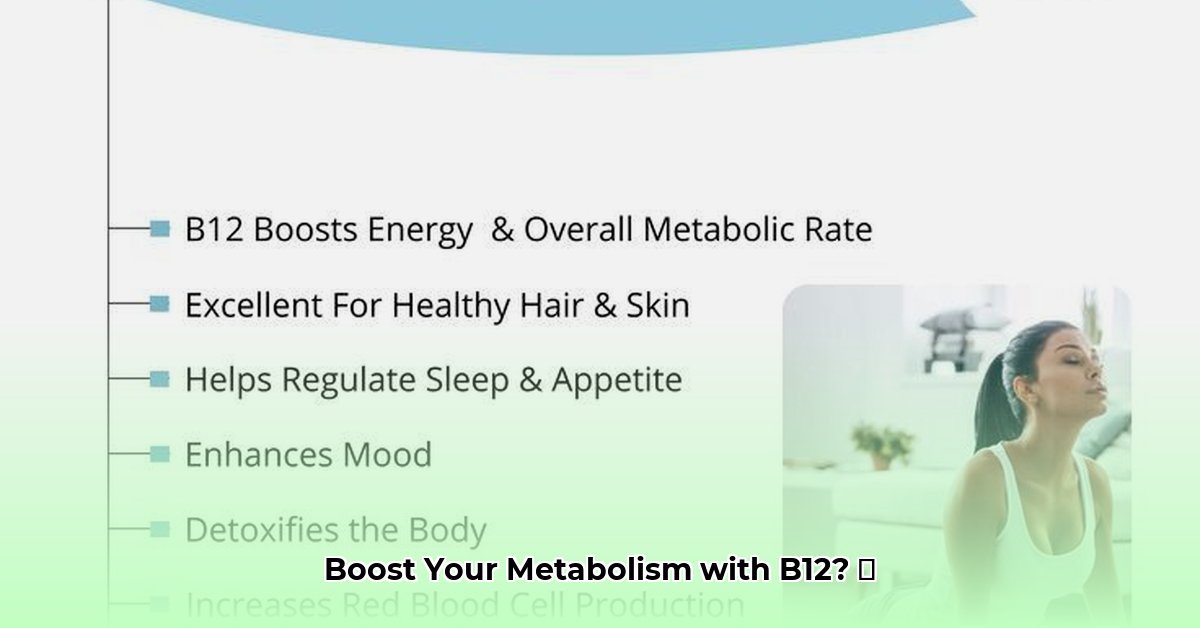
Understanding Vitamin B12: The Energy Booster
Vitamin B12 is a crucial nutrient, essential for energy production, nerve health, and red blood cell formation. Think of it as a vital spark plug for your body's engine. A deficiency can lead to various problems, making understanding its role crucial.
Vitamin B12 Deficiency: When Your Body Needs a Boost
A B12 deficiency occurs when your body doesn't get enough of this essential vitamin. This can happen due to a poor diet lacking B12-rich foods (like meat, poultry, fish, and dairy), issues absorbing B12 from food (sometimes related to digestive disorders), or certain medical conditions. Symptoms can include fatigue, weakness, numbness, tingling, and in severe cases, anemia. Recognizing these signs prompts a visit to your doctor for evaluation.
B12 Injections: How They Work and When They're Necessary
B12 injections deliver the vitamin directly into your bloodstream, bypassing the digestive system. This makes them highly effective for people who have trouble absorbing B12 through their digestive tract or have conditions like pernicious anemia (a condition where the body can’t absorb B12 from food). It's like giving a plant water directly to its roots instead of watering the soil—much more efficient.
B12 Injections and Weight Loss: Separating Fact from Fiction
Many believe B12 injections directly cause weight loss. However, scientific evidence does not support this claim. While increased energy from addressing a B12 deficiency might indirectly lead to some weight loss by enabling increased physical activity or healthier food choices in some individuals, there's no direct causal link. It’s like saying fixing a flat tire lets you drive, but it doesn't automatically turn your car into a race car. The improved energy might motivate healthier lifestyle changes, but the weight loss isn’t a direct result of the injection.
Potential Side Effects and Precautions
B12 injections are generally safe. Most people experience no side effects. However, some may experience minor discomfort at the injection site, such as soreness, redness, or itching—these typically resolve quickly. Serious side effects are rare. It's essential to discuss any concerns with your doctor before starting injections.
Alternatives to Injections: Other Ways to Increase B12 Levels
Oral B12 supplements are a readily available alternative for those with milder deficiencies. However, their absorption rate is lower than injections. A balanced diet, rich in B12-containing foods, is usually sufficient for most people. However, vegetarians and vegans may need to be more mindful of their B12 intake, possibly considering supplements or fortified foods.
Conclusion: Consult Your Doctor
B12 injections can be beneficial for individuals with deficiencies but shouldn't be seen as a weight-loss solution. Always consult your doctor before starting any B12 supplementation. They can assess your individual needs, determine if you have a deficiency, and recommend the most appropriate treatment—whether it's injections, oral supplements, or dietary changes. Remember that responsible health decisions are based on facts, not fads.
Key Takeaways:
- B12 injections effectively treat deficiencies, but their absorption is superior to oral supplements.
- Injections are ideal for individuals with significant deficiencies or absorption issues. Oral supplements are suitable for milder deficiencies and when good absorption is likely.
- There's no scientific evidence supporting the claim that B12 injections directly cause weight loss.
- Consult your doctor before starting any B12 supplementation to determine the best approach for you.